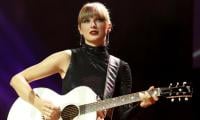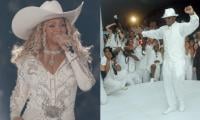Writers, artistes and scholars have announced support for democracy and the democratic system in Pakistan, appealing to the masses to exercise their right to vote and elect the representatives of their choice.
Famous poet and writer Ghulam Ali Wafa suggested that the people must come forward to save democracy by electing their representatives. He said a point raised by former premier Mian Nawaz Sharif was of a great worth that the mission of peace and a powerful Pakistan could only be achieved by the power of vote.
He said that in order to achieve the target of peace it was important to maintain peace between the neighboring countries, so that a major part of the budget could be spent on education.
Educationist and scholar Dr Auje Kamal expressed his dissatisfaction over the prevailing conditions, saying the general elections were being contested on the grounds of community, race and other narrow ideas. However, he said he supported the act of holding general elections after the passage of five years, saying it was a great achievement and the people should cast votes and reject all the biases.
He suggested that the people should elect representatives who were fair and believed in true democracy. A short story writer and novelist, Nasim Anjum, held the view that the writers of Pakistan must strengthen the democratic institutions and also the process of democracy by fully participating in the general elections.
Anjum said the people should elect true representatives by rejecting extremist forces and those opportunist elements causing economic losses to the national exchequer after becoming so-called representatives.
Another well-known poet and writer, Naveed Abbas, stated that in Pakistan the question of freedom remained unsolved, the people were never provided a true opportunity to elect their representatives in a fair and transparent manner, and instead the elections were rigged and engineered in the past.
He said the people were not very keen to go to the polling booths and elect their representatives. He predicted that a hung parliament could emerge as a result of the elections and ultimately a government of different political parties could be formed.
Noted poet Shabbir Nazish said: “Our country has never witnessed a true democratic system and writers’ stance on democracy is also never taken into account.”
He said the scenario was very disappointing as instead of leading the people in terms of wisdom, consciousness and guidance, a majority of writers (around 80 per cent of the writers) remained engaged in settling their own interests and gains.
Another writer, Ghafoor Asad, supported the plea of Shabbir Nazish, saying the writers did not determine their priorities to this effect. However, Asad said it was high time they fixed their priorities and played a positive role.
He said every writer and journalist was free to write on any issue; hence, negligence was on the part of writers, and not on the part of the state or state actors and rulers.
Another prominent poet, Sakhawat Ali Nadir, said that though the past democratic governments were not allowed to complete their tenures by then dictators, the forthcoming elections were being held timely and the writers must play their due role in electing their genuine representatives.
Nadir concluded that there was no solution other than democracy and the writers were also duty-bound to strengthen the democratic process for the cause of press freedom and freedom of expression in Pakistan.
“We must get rid of extremism, sectarianism and other biases and elect honest and dedicated political representatives to run the country fairly and democratically.”
Renowned poet and critic Prof Sahar Ansari observed it was imperative to elect genuine representatives thought secret ballot, and the people should apply their mind to electing only those who had the courage to get rid of the economic crisis the country was facing and could also work for the cause of its peace and progress.
He requested the people to elect representatives who could address all important issues being faced by the country such as social and economic crises, and lack of education.
Ansari observed that it was ironic that the education budget had gradually decreased in comparison to other fields. He said the political parties were duty-bound to allocate a reasonable budge for the cause of education in Pakistan.
Replying to a question, he said the past governments had failed to address the issue of water as they did not construct a single dam and at present it had become a big issue.
Replying to another question, he observed: “Mian Nawaz Sharif and his daughter Maryam Nawaz have showed great courage to come to Pakistan, while they had already been convicted.”
Former Prime Minister Benazir Bhutto at an election rally in Rawalpindi shortly before she was killed, December 27,...
The leader of the opposition in the Karachi Metropolitan Corporation City Council, Saifuddin Advocate of the...
The representational image shows school children learning at a private school in Pakistan. — AFP/FileThe Sindh...
The Sindh High Court building in Karachi. — SHC website/FileThe Sindh High Court has granted bail to a man in a...
Members of Christian community offer Christmas prayers at a church. — APP/File Christians in Karachi celebrated...
A representational image showing ambulances parked at an incident site. — AFP/FileA police official and another...







